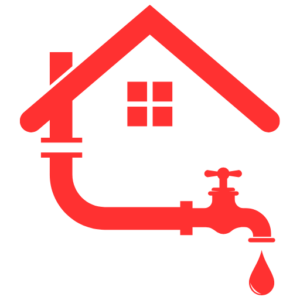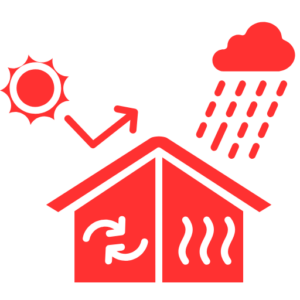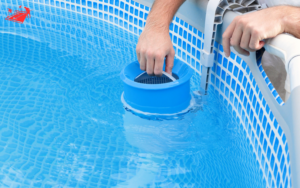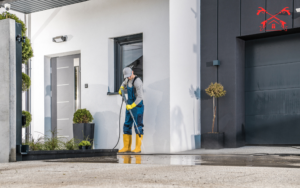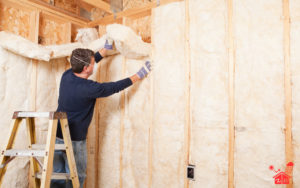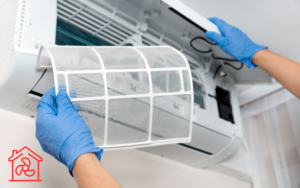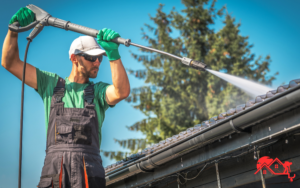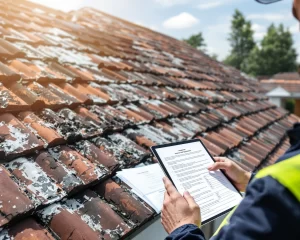Improve Indoor Air Quality in Hudson Oaks, TX This Spring
Spring is here, and it’s the perfect time for me to focus on improving indoor air quality in my home in Hudson Oaks, TX. I often overlook indoor air quality, but it’s essential for my family's well-being. With seasonal changes, including pollen and other allergens on the rise, I can take proactive steps to ensure my home remains a safe and healthy haven.
Why Is Indoor Air Quality Important?
Indoor air quality directly affects my health and comfort. Poor air quality can lead to a range of issues, from allergies and asthma to fatigue and decreased productivity. By making an effort to improve the air quality in my home, I’m not only enhancing my family's well-being but also fostering a more pleasant living environment.
Common Pollutants I Should Watch For
Understanding common indoor pollutants will help me identify areas where I can take action:
- Dust mites
- Mold spores
- Pet dander
- Pollen
- Volatile organic compounds (VOCs)
Effects of Poor Indoor Air Quality
I should be aware of how these pollutants can impact my family's health. Symptoms can include:
- Respiratory issues
- Allergic reactions
- Headaches
- Fatigue
Easy Ways to Improve Indoor Air Quality
I can take several simple steps to enhance the air quality in my home this spring:
1. Change My AC Air Filter
Regularly replacing my AC air filter is one of the simplest actions I can take. A clean filter helps reduce allergens and ensures my system runs efficiently.
2. Use an Air Purifier
Investing in a quality air purifier can significantly reduce the presence of airborne pollutants. I should choose one with a HEPA filter for the best results.
3. Maintain Proper Humidity Levels
Keeping humidity levels between 30% and 50% can minimize mold and dust mite growth. Using a dehumidifier in damp areas of my home can be effective.
4. Regularly Clean My Home
Frequent vacuuming and dusting help eliminate dust and allergens. I should consider using a vacuum with a HEPA filter for maximum effectiveness.
5. Introduce Indoor Plants
Certain indoor plants can naturally improve air quality by absorbing toxins. Some great options for my home include:
- Spider plant
- Peace lily
- Snake plant
6. Ventilate My Home
Opening windows regularly allows fresh air to circulate and can significantly reduce stale air and pollutants.
7. Avoid Smoking Indoors
I should remind my family and guests that smoking indoors can severely degrade air quality. Establishing a no-smoking policy inside my home is crucial.
8. Limit Use of VOCs
Choosing low-VOC or VOC-free products, such as paints and cleaners, helps minimize harmful emissions indoors.
9. Regular HVAC Maintenance
Scheduling regular HVAC maintenance ensures that my system is clean and functioning properly, which maintains optimal air quality.
10. Test for Radon
Testing my home for radon is essential, as this odorless gas can pose serious health risks. If elevated levels are found, I should consider installation of a radon mitigation system.
DIY vs. Professional Services
While I can take many DIY steps to improve air quality, hiring professionals can offer significant benefits. They have the expertise to identify hidden problems, clean ducts, and optimize HVAC systems. This for me can save money in the long run and ensure my family's health is protected.
Testimonials
“I didn’t realize how much air quality affected our family’s health until we made some changes. Now we feel more energetic and clear-headed!” — Lisa R., Hudson Oaks, TX
“I wish I had focused on air quality sooner. It’s amazing how much simply changing my AC filter improved our home!” — Marcus T., Fort Worth, TX
“Working with professionals made all the difference. They found solutions I never would have considered!” — Sarah B., Springtown, TX
Did You Know?
Did you know that indoor air can be up to five times more polluted than outdoor air? This surprising fact emphasizes the importance of actively improving indoor air quality in my home.
TL;DR Summary
- Change my AC air filter regularly.
- Use air purifiers to reduce airborne pollutants.
- Keep humidity levels in check.
- Regularly clean my home to eliminate allergens.
- Schedule HVAC maintenance and consider professional help when needed.
FAQs
1. How can I tell if my indoor air quality is poor?
I can look for signs such as increased allergy symptoms, lingering odors, or visible dust. If I’m experiencing any of these, it might be time to assess my air quality.
2. How often should I change my AC air filter?
Generally, changing my AC air filter every 1-3 months is recommended, but I should check it more frequently if I have pets or allergies.
3. Are air purifiers worth the investment?
Yes, investing in a good air purifier can immensely improve indoor air quality, especially if I suffer from allergies or asthma.
4. Can houseplants really improve air quality?
Absolutely! Houseplants can absorb toxins and increase oxygen levels, making them a great addition for cleaner indoor air.
5. Should I hire a professional for air quality testing?
If I suspect significant issues or have health concerns, it’s a wise choice to hire a professional for accurate testing and solutions tailored to my home.























